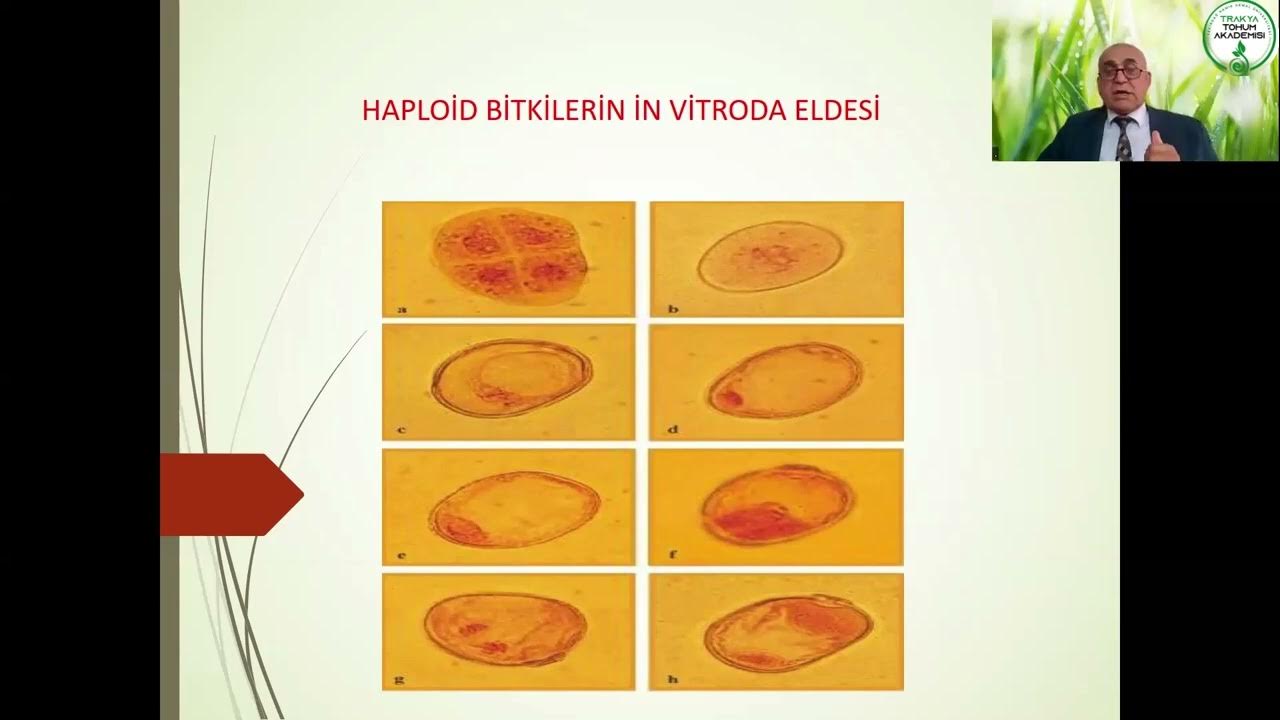Quantitative genetics 4 - Additive and non additive effects
Summary
TLDRThis lecture segment from the University of Ostrava's 'Applied Genetics' course delves into the concept of heritability in plant breeding. It explains that broad sense heritability, encompassing additive, dominance, and interaction variance, may not accurately predict breeding outcomes due to its inclusion of non-heritable elements like dominance and epistasis. These factors are lost during meiosis and do not contribute to the offspring's genome. Instead, narrow sense heritability, which focuses solely on the additive effects of alleles, is crucial for predicting breeding success. The video underscores the importance of distinguishing between additive and non-additive genetic effects for effective plant breeding.
Takeaways
- 🌿 **Broad Sense Heritability**: Useful in clonally reproducing organisms where the parent passes the entire genome to the offspring.
- 🌱 **Genetic Variance in Sexual Reproduction**: Not all genetic variance is heritable due to allele interactions during sexual reproduction.
- 🔍 **Phenotype Determination**: A phenotype results from both additive effects of alleles and dominance at the same locus.
- 🚫 **Dominance Effects**: Makes it impossible to estimate recessive allele effects unless in a recessive homozygote state.
- 🔄 **Epistasis**: Interaction between different genes can prevent the expression of some alleles, affecting the observable phenotype.
- 🌼 **Inheritance Limitations**: Dominance and interaction effects are not heritable in sexual reproduction due to meiosis.
- 🧬 **Additive Effects Inheritance**: Offspring inherit only the additive effects of alleles from their parents.
- 📉 **Predicting Breeding Efficiency**: Broad sense heritability may not predict breeding program efficiency as it includes non-additive effects.
- 📊 **Narrow Sense Heritability**: Focuses on the heritable additive genetic variation, crucial for predicting breeding outcomes.
- 🔎 **Observational Limitations**: It's challenging to distinguish between additive and non-additive genetic effects through simple observation.
Q & A
What is broad sense heritability and why is it useful in clonally reproducing organisms?
-Broad sense heritability is a measure of the proportion of phenotypic variation in a population that can be attributed to genetic variation. It is useful in clonally reproducing organisms because the parent transmits its entire genome to the offspring, making the genetic variance more directly related to the phenotypic variance.
How does sexual reproduction affect the heritability of traits in plants?
-In sexually reproducing plants, heritability is affected by the independent segregation and assortment of alleles, which means not all genetic variance is heritable due to allele interactions at the same or different loci.
What is the role of dominance in the expression of genetic traits?
-Dominance is a genetic relationship where one allele masks the effect of another allele at the same locus. It affects the expression of genetic traits because recessive alleles are not expressed unless they are in a homozygote state.
What is meant by the term 'epistasis' in genetics?
-Epistasis refers to the phenomenon where the effect of one gene is modified by one or more other genes. It can prevent the expression of some alleles, making it difficult to deduce the actual genotype of an organism by its phenotype alone.
Why are dominance and interaction effects not heritable in sexual reproduction?
-Dominance and interaction effects are not heritable in sexual reproduction because they are lost during meiosis when haploid gametes are produced, and new combinations are formed when gametes from two parents combine to create a new genotype.
How does narrow sense heritability differ from broad sense heritability?
-Narrow sense heritability focuses only on the additive genetic effects, whereas broad sense heritability includes additive, dominance, and interaction variance. Narrow sense heritability is more relevant for predicting the outcome of a breeding program.
Why is additive variance important in plant breeding programs?
-Additive variance is important because it is the only heritable component of genetic variation. It allows breeders to estimate heritability and reliably predict the genetic potential of offspring in a breeding program.
How can breeders estimate narrow sense heritability if they cannot distinguish between additive and non-additive genetic effects?
-Breeders estimate narrow sense heritability through controlled crosses and statistical analysis of the progeny's phenotypes, which can reveal the additive genetic effects despite the presence of non-additive effects.
What is the significance of knowing the additive variance in a plant population?
-Knowing the additive variance is crucial for understanding the potential for genetic improvement in a population. It helps in predicting the response to selection and the success of a breeding program.
How does environmental control aid in the estimation of heritability?
-Environmental control helps in the estimation of heritability by minimizing the environmental variation that could otherwise mask the genetic variation, allowing for a clearer assessment of the genetic contribution to phenotypic traits.
What are the implications of not being able to predict breeding outcomes based on broad sense heritability alone?
-The inability to predict breeding outcomes based on broad sense heritability alone means that breeders cannot reliably estimate the genetic potential of their crosses. This could lead to inefficiencies in breeding programs and unpredictable results.
Outlines

Cette section est réservée aux utilisateurs payants. Améliorez votre compte pour accéder à cette section.
Améliorer maintenantMindmap

Cette section est réservée aux utilisateurs payants. Améliorez votre compte pour accéder à cette section.
Améliorer maintenantKeywords

Cette section est réservée aux utilisateurs payants. Améliorez votre compte pour accéder à cette section.
Améliorer maintenantHighlights

Cette section est réservée aux utilisateurs payants. Améliorez votre compte pour accéder à cette section.
Améliorer maintenantTranscripts

Cette section est réservée aux utilisateurs payants. Améliorez votre compte pour accéder à cette section.
Améliorer maintenantVoir Plus de Vidéos Connexes
5.0 / 5 (0 votes)






